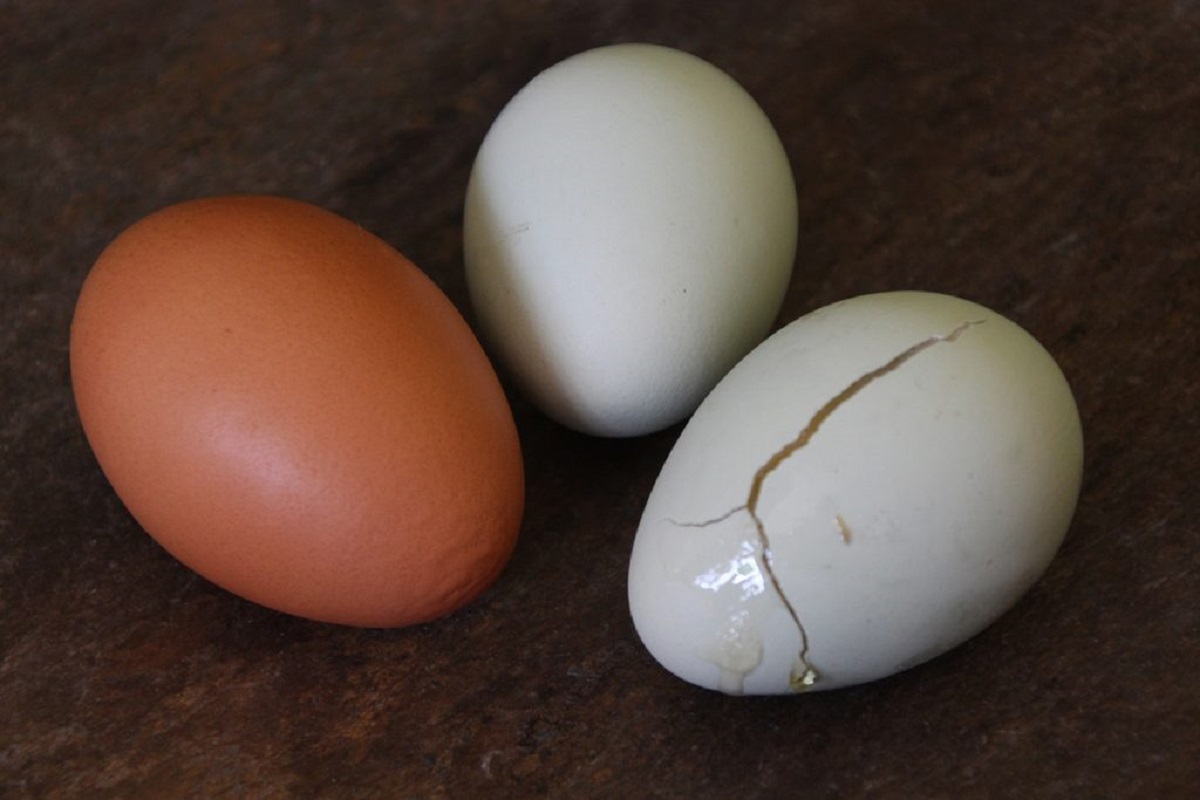Is Eating Cracked Eggs Harmful?

Eating Cracked Eggs: Eggs are a common food item consumed worldwide, providing a valuable source of protein, vitamins, and minerals.
However, questions often arise regarding the safety of consuming eggs, especially when the eggshell is cracked. The eggshell and its membrane play a crucial role in protecting the egg from harmful bacteria, such as Salmonella. When these protective barriers are compromised, the egg may become more susceptible to contamination. In this essay, we will explore the potential risks associated with eating cracked eggs and whether it is safe to do so.
The Protective Role Of The Eggshell
Eating Cracked Eggs, The eggshell serves as a primary defense against external contamination, acting as a barrier that prevents bacteria from entering the egg. The shell is composed of calcium carbonate and is semi-permeable, meaning that gases and moisture can pass through, but large particles, including bacteria, are generally kept out. Additionally, the inner membrane of the shell provides an additional layer of defense by restricting the movement of microorganisms.
What Happens When the Eggshell Is Cracked?
Eating Cracked Eggs, A cracked eggshell significantly reduces the effectiveness of these natural protective mechanisms. When the shell is compromised, bacteria can more easily enter the egg. Salmonella, a bacteria commonly associated with foodborne illnesses, is a particular concern. Although the presence of Salmonella inside the egg is rare, the risk increases if the egg’s protective layers are damaged or if the egg is not stored properly.
The Risks Of Eating Cracked Eggs

Bacterial Contamination: Cracked eggs are more prone to bacterial contamination, especially if they are not refrigerated or are stored improperly. Bacteria can enter the egg through the cracks, potentially leading to food poisoning if consumed.
Decreased Freshness: A cracked egg is also more likely to spoil quickly, as the protective barrier has been breached. This means that the egg may have a shorter shelf life compared to an uncracked egg.
Cross-Contamination: Cracked eggs can spread bacteria to other foods in the kitchen if handled improperly. For example, if the egg leaks or spills, it could contaminate countertops, utensils, and other foods, increasing the risk of foodborne illness.
Precautions When Handling Cracked Eggs

Eating Cracked Eggs, If you do decide to consume a cracked egg, it’s important to follow proper food safety practices to minimize the risk of illness:
Inspect The Egg: Before eating or using a cracked egg, examine it carefully. If the egg has been cracked for a while or shows signs of spoilage (such as a sour smell or abnormal color), it is best to discard it.
Refrigerate Immediately: If an egg is cracked, store it in the refrigerator as soon as possible to slow the growth of bacteria. Do not leave it at room temperature for extended periods.
Cook Thoroughly: Cooking eggs thoroughly can help kill harmful bacteria, such as Salmonella. This includes ensuring that the yolk is firm and that the egg white is fully set.
Avoid Cross-Contamination: When handling cracked eggs, be mindful of hygiene practices. Wash your hands, utensils, and surfaces thoroughly to avoid spreading bacteria.
Also Read:
The 7 Practical Steps To Prevent Weight Gain
The Ideal Time To Drink Coffee For Reducing The Risk Of Premature Death




